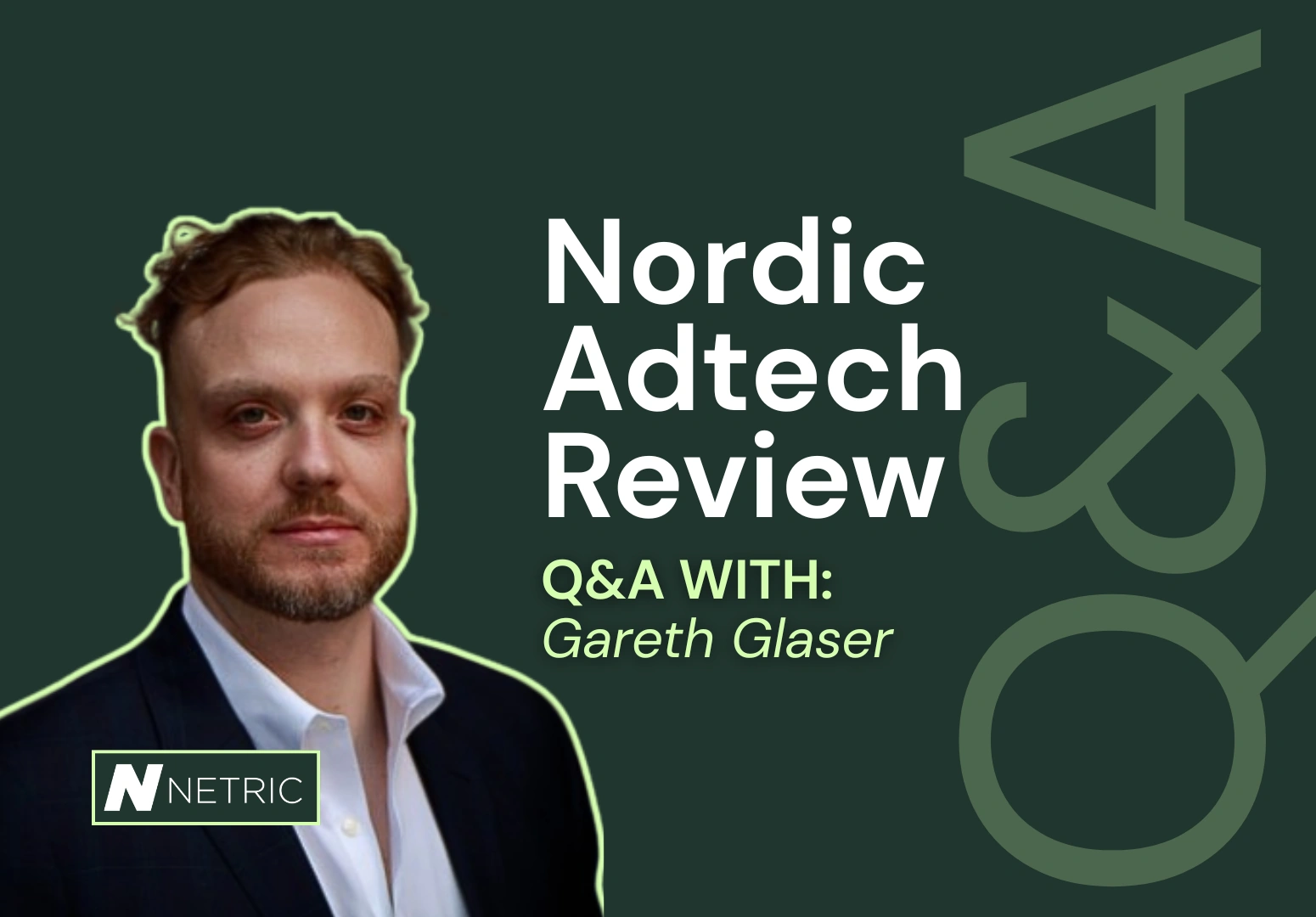Nordic Adtech Review: a Q&A with Gareth Glaser

Recently, we sat down with Gareth Glaser, author of one of the industry’s favourite newsletters, Gareth Hates Adtech, and Cofounder and CEO at Gamera, Inc, to unpack some of the hottest news stories in recent weeks: IAB Tech Lab’s Trusted Server concept and its wider implications for auctions; more browser privacy moves; and the ongoing antitrust storm swirling around Google’s ad stack.
Q: What is the IAB Tech Lab's Trusted Server, and what potential does it have?
Gareth Glaser: The vision behind the Trusted Server was initially rather exciting. As an open-source framework for server-side ad management, ideally, it would allow all ads on a page to be auctioned within the CDN before the page even loads. This would eliminate the need for JavaScript in ad rendering, reduce latency to zero, and thwart ad blockers. If I were reimagining how ads worked on the internet, that would absolutely be how I did it. They should be auctioned by the system that is rendering the actual content prior to the content rendering.
But there are two issues. The actual proposition was much more modest: essentially an edge-hosted version of the Prebid server, which is how a lot of companies host their Prebid server today, and an ID resolution module. While the concept is interesting, the execution does somewhat belie the original vision.
Second, I think the toothpaste is a little out of the tube when it comes to how ads work. We use JavaScripts for lots of things now, and to remove the client-side component from ads in general right now would damage how the ecosystem works today. So it's an interesting idea, if browsers go nuclear…
Q: Ok, so are browsers taking aggressive actions against privacy?
GG: Not really. Chrome has announced they’re no longer deprecating cookies, and while Safari has implemented URL stripping in alpha versions, it's unlikely to be rolled out widely. The tech giants with browser and advertising businesses have become cautious due to antitrust scrutiny. As such, radical changes that damage the online ad ecosystem seem unlikely for now.
Q: So will the Trusted Server initiative survive or fade away?
GG: I believe it will fade. To truly succeed, it would require strong backing from major CDN providers. Yet, most CDN companies, like Cloudflare, are uninterested or even opposed to getting involved in advertising. Without serious investment and commitment, Trusted Server will struggle to become viable. Moreover, the industry’s real threat comes from LLMs reducing web traffic, not browser-side interventions.
Q: Regarding the antitrust trial, how did they come to the verdict and what do you think the outcome of the settlements will be?
GG: The key legal argument they are using is "tying," where Google allegedly used its dominance in one market (GDN, which they leveraged into ad serving) to force adoption of another product (GAM). AdX provides demand that publishers can't easily access elsewhere, making it indispensable. Because AdX demand doesn't bid through Prebid - unlike other exchanges - publishers could in theory be locked into using GAM. As for the trial in September, this will obviously focus on potential remedies, such as Google selling off parts of its adtech business, to address the dominance aspect, but we’ll have to wait and see what specific settlements are made.
Q: Could the antitrust issues be resolved simply by making AdX bid into Prebid?
GG: In theory, yes. If AdX behaved like any other adapter inside Prebid, the competition concerns would melt away. The snag is the commercial fallout. Roughly 70% of active GAM accounts exist solely to tap AdX demand.
In the Nordics - where publishers still lean on direct‑sold deals rather than relying heavily on programmatic deals - losing GAM would sting, but not cripple. In the US, however, countless small publishers onboarded by networks such as Freestar or Raptive run zero direct sales, so their GAM instance contains just AdX and Prebid. Open up AdX and those publishers could jettison GAM overnight, eroding both market share and ad‑server fees. Google seems to have bet on deeper integration between GAM and AdX, but it has backfired.
Q: When did this deeper integration between GAM and AdX start?
GG: It started roughly five to six years ago. An early example was the launch of Unified Pricing Rules (UPRs). Under UPRs you cannot set a price floor in AdX that isn’t automatically imposed on every other line item in GAM. All other ad exchanges can have bespoke floors, but nobody is allowed to bid below AdX’s floor. The moment a UPR exists, every exchange is shackled to it - an overtly anti‑competitive move. UPRs were just the first in a laundry list of product tweaks that tightened the AdX‑GAM knot and boxed out rivals.
Q: How has the industry responded to Google's dominance?
GG: For a long time, there was a chilling effect. Industry players were reluctant to criticise Google publicly because DV360 was a critical source of revenue. However, the antitrust trial has changed that sentiment. Publishers and exchanges are now speaking out. It's been a long time coming, but finally, the industry seems ready to demand a fairer playing field.
It's remarkable that Google managed to maintain this dominance for so long, despite clear anti-competitive practices. The antitrust lawsuits are critical steps towards restoring competition in the ad tech ecosystem. However, true change will only come if remedies like mandatory Prebid participation for AdX are implemented. Otherwise, we risk history repeating itself.
Ready to unlock the full value of your inventory? Speak with our team of experts and discover how Netric can help you maximise every impression.


